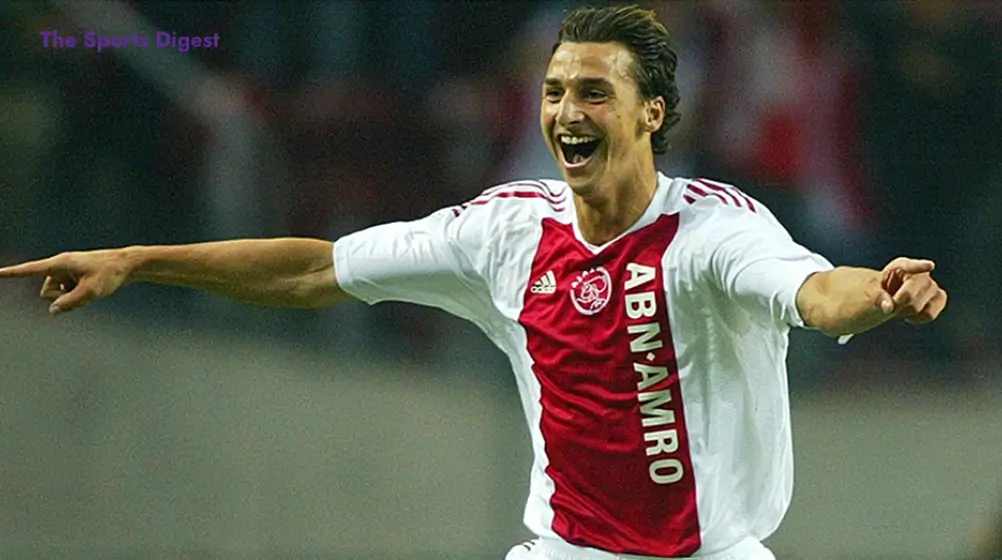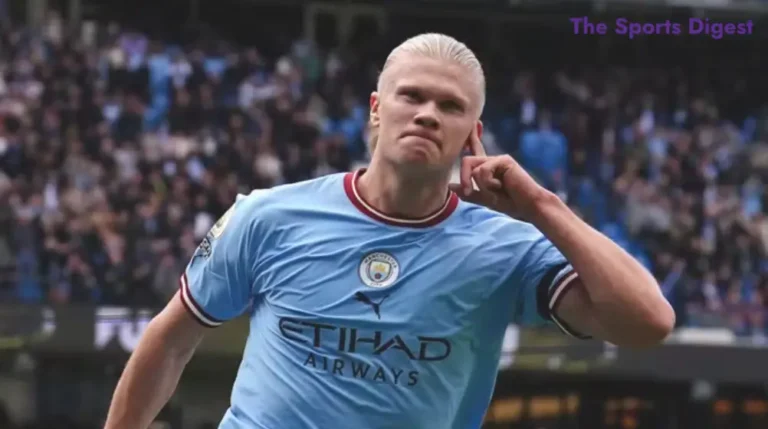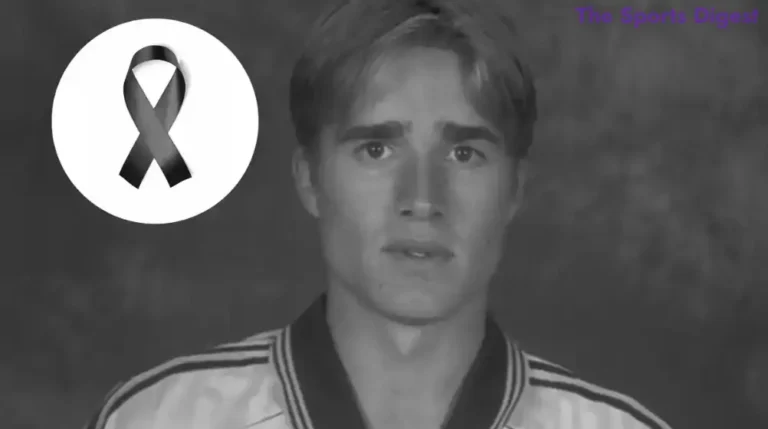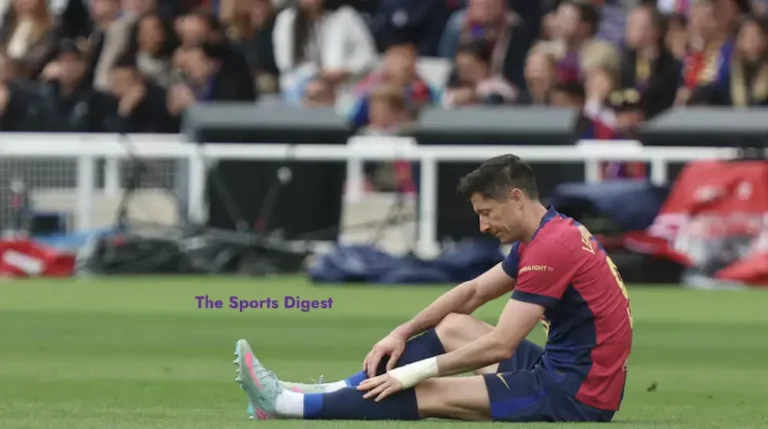Ibrahimović Rise Begins at Ajax
It was a moment of pure, unadulterated genius. Zlatan Ibrahimović, in his final appearance for Ajax, collected the ball and proceeded to slalom through the entire NAC Breda defense, weaving past defender after defender before coolly slotting the ball into the net. This wasn’t just a goal; it was a statement—a declaration of the extraordinary talent that Amsterdam was about to lose and the world of football was about to gain.
This magnificent solo effort served as the perfect bookend to Ibrahimović’s Ajax journey. In that single moment of brilliance, fans glimpsed both what they had enjoyed and what they would miss: a game-changer, a magisterial forward who would go on to become one of the greatest strikers of his generation.
Table of Contents
Zlatan Ibrahimović: The Journey Begins in Amsterdam
Three years before that spectacular farewell, a young Ibrahimović arrived from Malmö FF sporting a different hairstyle but the same unshakeable confidence. His journey to Ajax began when Leo Beenhakker, the club’s Director of Football, needed just 15 minutes to become convinced of his potential. Danish scout John Steen Olsen had similarly identified the raw talent that would soon blossom in Amsterdam.
Ajax moved swiftly to secure his signature, outmaneuvering Fabio Capello’s Roma in the process. For Zlatan Ibrahimović, this represented not just a career advancement but a significant life change—his first move abroad, with all the challenges of cultural adaptation and expectations that would entail.
High Expectations and Early Perceptions
The transfer commanded a record fee for Ajax at the time, immediately placing a target on the young Swede’s back. Relatively unknown outside his homeland, Zlatan Ibrahimović needed to make an early impact to justify the investment. The pressure intensified when he was likened to Marco van Basten and given the iconic number 9 shirt—comparisons that would burden lesser players.
His reputation preceded him, albeit not entirely favorably. Early exonerations for reckless driving in Sweden had created a less-than-ideal media image. Coincidentally, his signing came alongside Egyptian forward Mido, who carried a similar reputation for being difficult to manage. Together, they formed what would become a volatile partnership both on and off the pitch.
Early Promise and European Disappointment
Ibrahimović’s Ajax debut came in a Champions League qualifier against Celtic. Though he featured, Ajax’s elimination meant his proper Champions League debut would be delayed as the club dropped to the UEFA Cup. In domestic competition, however, he made an immediate impact.
His league start was particularly impressive, scoring and assisting in a crucial 2-1 victory over rivals Feyenoord—a performance he would replicate against Twente. When he followed this with goals in two consecutive UEFA Cup matches, it appeared Ajax’s investment was paying early dividends.
During these initial months, the “troublemaker” tag that had followed him from Sweden began to fade as he established himself as a regular starter. Yet beneath this promising beginning, challenges were brewing that would test the young striker’s resolve.
Off-Field Struggles and On-Pitch Frustrations
Away from the spotlight, Zlatan Ibrahimović struggled to adapt. The language barrier proved difficult, and communication with coach Co Adriaanse was strained at best. As Ajax’s form fluctuated, fans increasingly targeted him as a convenient scapegoat for the team’s inconsistency.
His frustration boiled over in a match against Groningen, where an elbowing incident earned him a five-match suspension. By the winter transfer window, his situation had deteriorated to the point where he sought a loan move back to Malmö FF, contacting Hasse Borg, a figure he considered an “extra dad.”
In a moment that Zlatan Ibrahimović would later describe with characteristic fury in his autobiography, Borg ultimately prioritized Ajax’s interests over his own, a perceived betrayal that stung the young striker. Adding insult to injury, Ibrahimović discovered through conversations with teammate André Bergdølmo that despite his record transfer fee, he was among the lowest-earning senior players in the squad—a revelation that further fueled his discontent.
A Change in Management and Fortunes
November 2001 brought a significant shift when Ronald Koeman replaced Co Adriaanse as manager. Zlatan Ibrahimović saw this change as an opportunity to reset his Ajax experience. During this challenging period, he formed a close bond with Brazilian full-back Maxwell, who had also joined that summer. The two lived together in Amsterdam, with Maxwell providing a crucial support system during Ibrahimović’s period of adjustment.
Becoming a Key Player and Winning Trophies
As the season progressed, Zlatan Ibrahimović gradually established himself as Ajax’s primary striker, with Mido’s playing time diminishing correspondingly. His growing confidence translated into improved performances, contributing to Ajax’s league resurgence.
A pivotal moment came against Sparta Rotterdam, where he entered as a substitute and influenced all three goals—scoring one and assisting two—in a victory that secured the Eredivisie title. This triumph was followed by glory in the KNVB Cup final against Utrecht, where Ibrahimović scored the golden goal in extra time. His celebration marked not just his first trophy but the beginning of a winning mentality that would define his career.
Egos Clash and a Champions League Opportunity
The anticipated collision between the strong personalities of Mido and Zlatan Ibrahimović eventually occurred following a defeat to Feyenoord. In an off-camera incident, Mido threw scissors at Ibrahimović, who responded in kind. Yet characteristically for two fiery competitors, they reconciled almost as quickly as they had clashed.
The repercussions, however, were significant. Mido’s suspension and fine created an opening for Zlatan Ibrahimović in the Champions League—an opportunity he would seize with both hands.
A Dream Champions League Debut
In the opening game against Lyon, Ibrahimović announced himself on the European stage with a spectacular solo goal followed by a second strike, completing a perfect Champions League debut. This performance wasn’t merely impressive—it was a declaration of arrival at football’s elite level.
Continued European and Domestic Form
His European impact continued with a crucial goal against Rosenborg that helped Ajax qualify for the second group stage, where they would face Valencia, Arsenal, and Roma. Domestically, after December, he found consistent form, scoring 11 goals in 12 games and cementing his position as the first-choice forward.
Though Ajax failed to retain their league title and were eliminated from the KNVB Cup by rivals Feyenoord, their European campaign advanced to the quarter-finals despite an inconsistent second group stage. Zlatan Ibrahimović added to his Champions League tally with goals against Valencia and Roma before their journey ended against AC Milan. His five Champions League goals established him as a big-game performer, capable of shining on the grandest stage.
An injury prematurely concluded his season, but with 21 goals in 42 appearances, Ajax had witnessed the emergence of a genuine talent.
Ballon d’Or Recognition and Growing Acclaim
At just 21 years old, Ibrahimović received his first Ballon d’Or nomination, finishing 20th—an early indication of his trajectory toward football’s elite. By the 2003/04 season, he had fully won over the Ajax faithful, who embraced his increasingly flamboyant style based on flair and technical ability. His performances were now viewed as justifying the club’s significant investment.
League Title Success and Stirrings of Departure
A more commanding Ibrahimović helped guide Ajax to another league title in his third season. Despite missing three months with a hamstring injury, he contributed outstanding goals, including memorable overhead kicks against AZ and NAC, alongside exceptional assists that showcased his complete skill set.
Yet even as his on-field contributions peaked, off-field tensions grew. Clashes with Louis van Gaal, now director of football, regarding his playing style created friction. A more public incident with Rafael van der Vaart during an international friendly—where Ibrahimović injured his teammate with a tackle—further complicated matters. With Dutch fans largely siding with the homegrown Van der Vaart, the environment had become increasingly unsettled for the Swedish striker.
Engineered Exit and Final Brilliance
Working with agent Mino Raiola, Ibrahimović engineered a move to Juventus. His Ajax career concluded with that breathtaking solo goal against NAC Breda—a fitting final flourish for a player who had scored 48 goals in 110 appearances and won four trophies during his time in Amsterdam.
Legacy in Amsterdam
Despite the circumstances of his departure, Ibrahimović has maintained that he “still holds Ajax dear in his heart” and credits the club for his development as a player. His time in Amsterdam had laid the foundation for what would become one of football’s most decorated careers.
In those three transformative years, Zlatan Ibrahimović had arrived as a raw, unpolished talent with a reputation for volatility and departed as a confident, technically gifted forward ready to conquer Europe. The roots of his greatness—the technical brilliance, the winning mentality, the unshakeable self-belief—had been firmly planted in the fertile soil of Amsterdam, ready to flourish across the grand stages of European football.
Have you ever read an article like this?
There are no reviews yet. Be the first one to write one.






